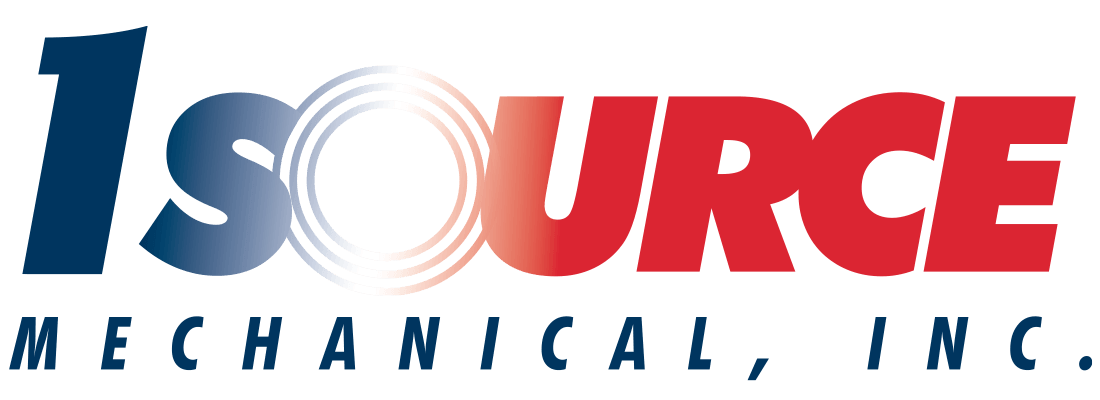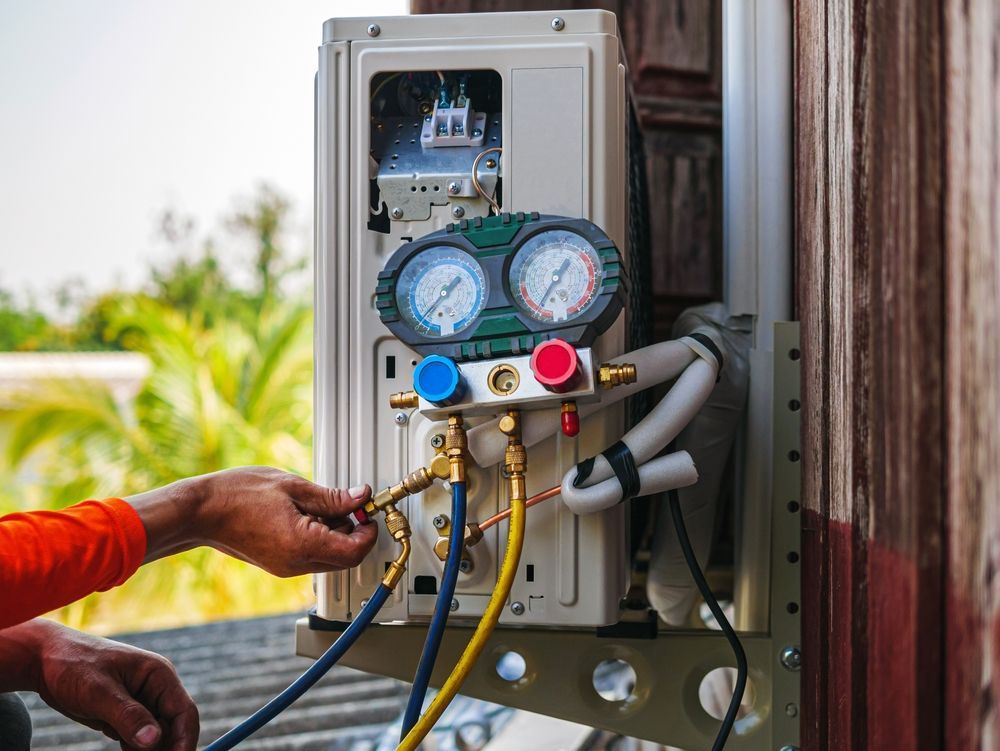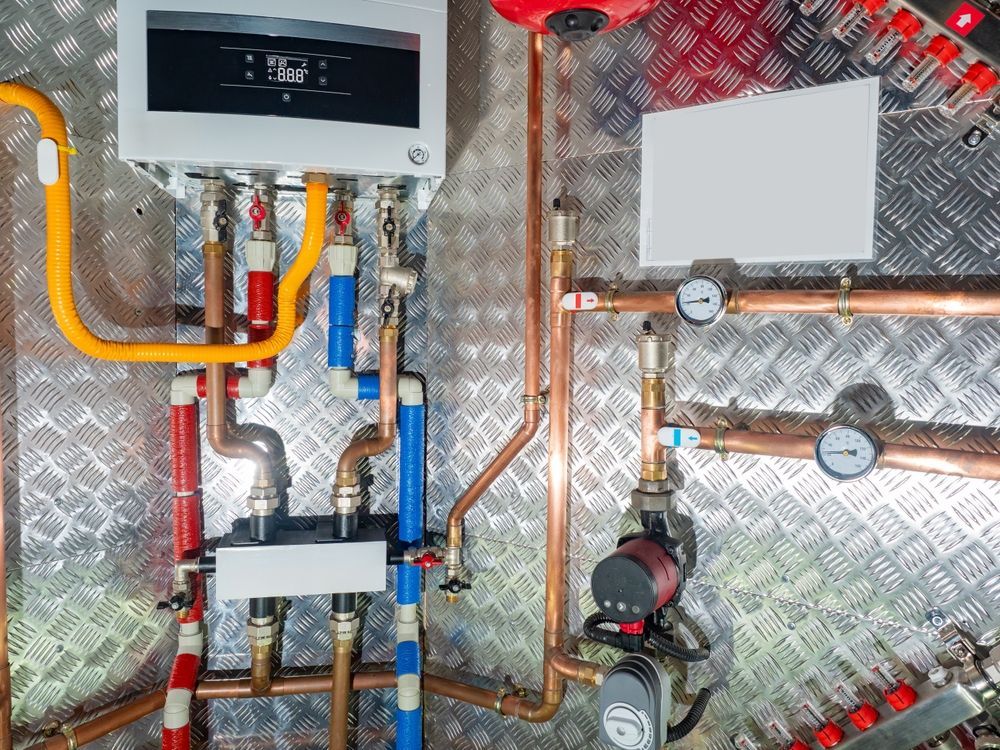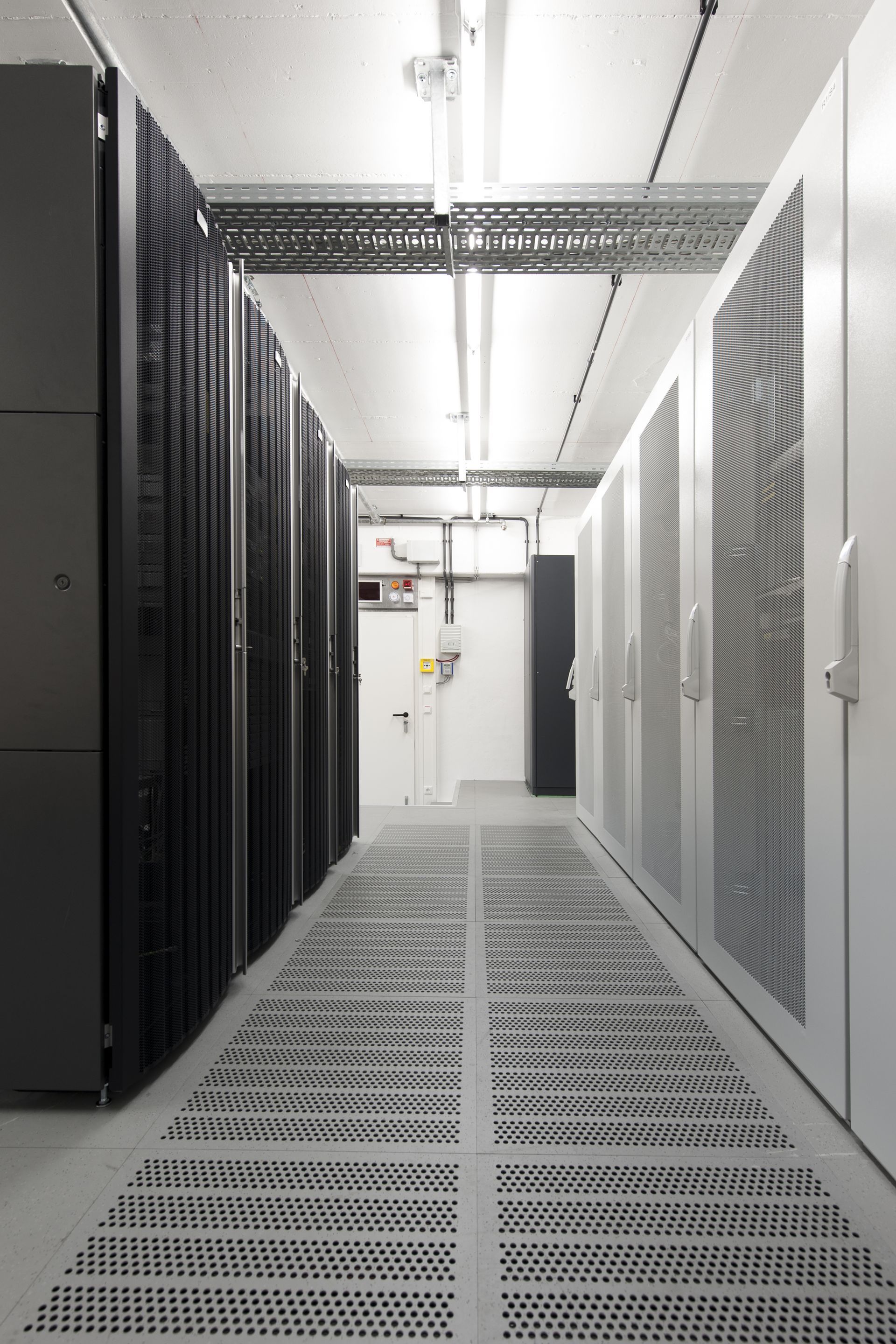How Chiller Systems Add Value to Commercial Spaces
For many commercial properties, temperature control isn’t just about comfort. It also protects equipment, preserves products, and keeps operations running smoothly.
Chiller systems play a key role in meeting these goals, providing reliable cooling for a wide range of facilities, including office towers, hotels, manufacturing plants, and data centers. The right setup can impact utility costs, employee productivity, and long-term maintenance needs.
Understanding what chiller systems do and how they operate helps business owners and facility managers make smarter investments. When designed, installed, and serviced correctly, they become an asset that supports both day-to-day operations and a company’s bottom line.
What Is a Chiller System?
A chiller system is a large-scale cooling solution that removes heat from a liquid, typically water or a water-glycol mixture. That chilled liquid is then circulated through equipment or air handlers to maintain comfortable indoor temperatures or keep machinery from overheating.
In commercial settings, these systems are often part of a central plant that serves multiple floors, zones, or even entire buildings. They are especially valuable in facilities where cooling loads are high, such as hotels, manufacturing plants, hospitals, and data centers.
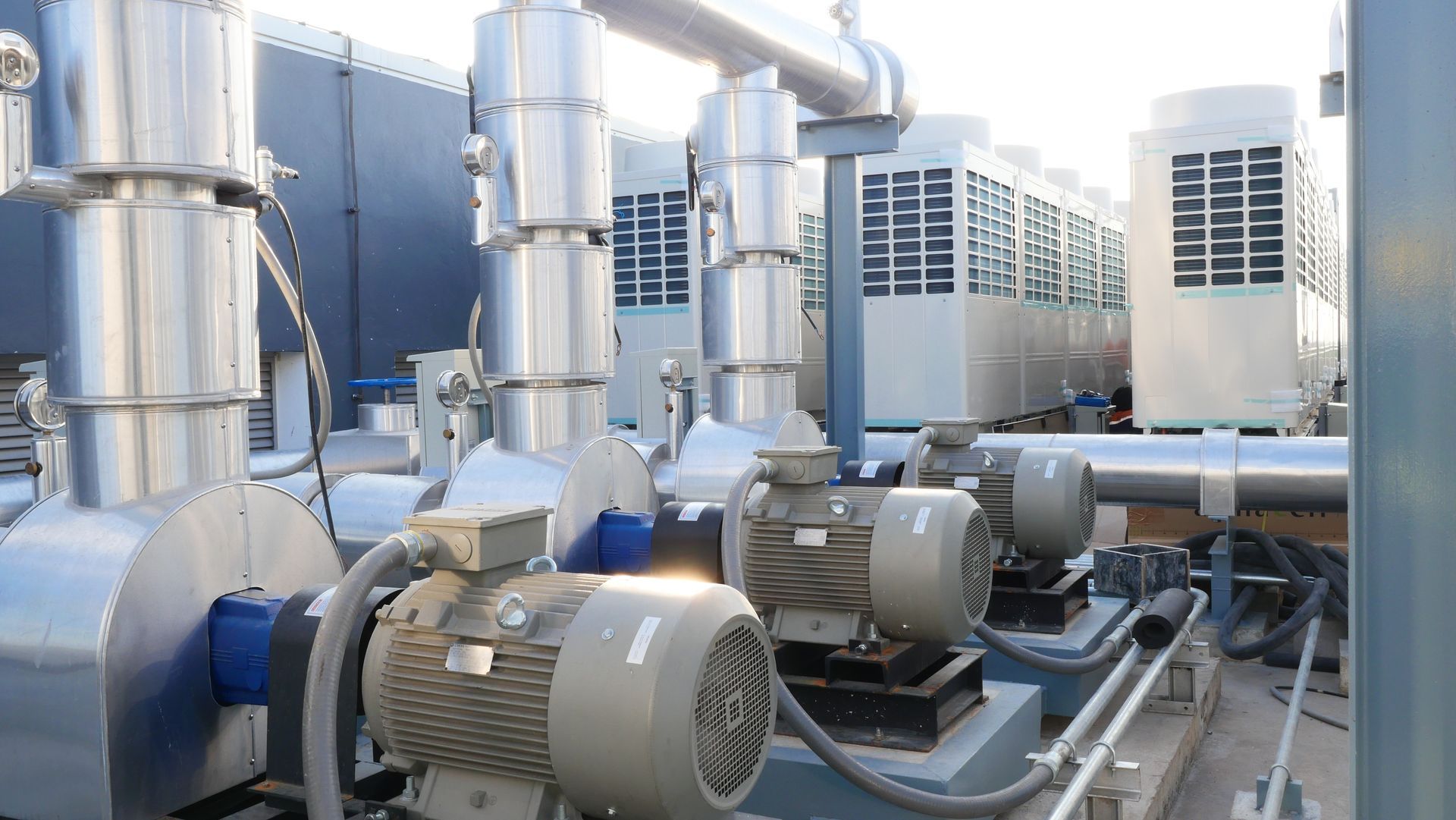
These systems can be air-cooled or water-cooled, each suited to different building designs and operational needs. No matter the configuration, they are built to deliver consistent, reliable cooling at a scale most other HVAC solutions can’t match.
Types of Chillers
Chiller systems fall into three main categories: air-cooled, water-cooled, and heat pump chillers. Each type serves different building needs and operational priorities, and understanding the distinctions can help determine the most cost-effective and efficient choice for a facility.
The Benefits of Chiller Systems in Commercial Spaces
Energy Efficiency
Modern equipment offers advanced control systems that allow precise load matching, reducing unnecessary energy use. Technologies like variable-speed drives, magnetic bearing compressors, and free cooling options help operators fine-tune performance. In addition to direct energy savings, these improvements can help qualify for local utility rebates or incentive programs.
Improved Indoor Comfort
Reliable cooling creates a stable indoor climate, which is especially important for buildings where comfort directly affects revenue. Hotels, retail spaces, and entertainment venues often depend on guest experience, and temperature is a big part of that. Stable cooling also helps prevent humidity-related problems, such as mold growth or damage to sensitive products. In many cases, commercial air conditioning systems work in tandem with chillers to maintain ideal indoor conditions throughout the year.
Enhanced Equipment Longevity
Overheating can shorten the life of not only HVAC systems but also manufacturing machinery, computer servers, and electrical switchgear. Cooling systems that hold temperatures within a narrow range reduce thermal cycling, which is one of the main contributors to mechanical wear and electrical failures. Over time, that stability translates to fewer repairs and longer intervals between major equipment replacements.
Scalability & Flexibility
As a business grows, its cooling demands often grow too. Systems that are modular or have expansion-ready designs can be scaled to meet increased capacity without replacing the entire system. This flexibility allows facility managers to plan capital expenses in stages rather than making one large investment upfront.
Sustainability & Green Building Support
Sustainable cooling strategies are becoming a competitive advantage for many organizations. High-efficiency chillers, coupled with water-saving measures and low-global-warming-potential refrigerants, can contribute to achieving LEED certification or other environmental benchmarks. Forward-thinking companies use these upgrades as part of their public sustainability commitments, which can strengthen brand image and meet stakeholder expectations.
Signs Your Building May Need a Chiller System Upgrade or Installation
Several issues may indicate that your building’s cooling setup is no longer meeting demands:
- Utility bills continue to rise despite no significant change in usage.
- Recurring repair calls or unexplained breakdowns that interrupt business operations.
- Temperature complaints from tenants, guests, or employees.
- Outdated equipment using phased-out refrigerants or lacking modern control technology.
- Expanding operations that require greater cooling capacity than your current system provides.
Ignoring these warning signs can lead to costly emergency repairs or even system failure at critical times. Scheduling an
annual inspection can help detect these issues early and give facility managers time to address them before peak cooling season.
Why Choose 1 Source Mechanical for Your Commercial Chiller Needs?
1 Source Mechanical brings decades of combined expertise in installing, maintaining, and upgrading cooling equipment for commercial clients throughout the Chicagoland area. Our portfolio includes hotels, municipal buildings, manufacturing facilities, healthcare centers, and multi-tenant office properties. This broad experience means we understand how to adapt solutions to unique operational challenges.
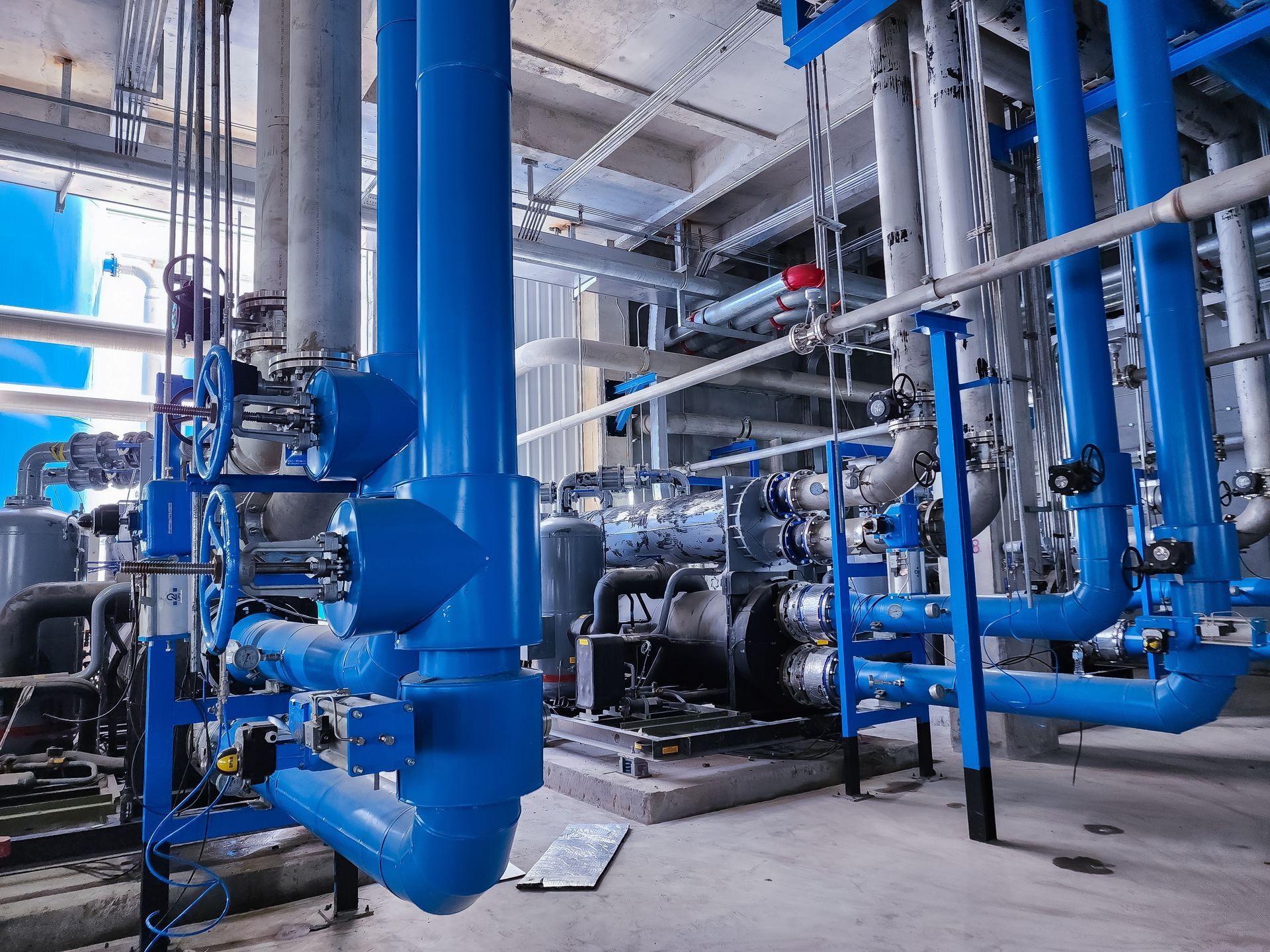
Our team provides full-service support that covers design, engineering, installation, and commissioning. Our preventive maintenance programs are tailored to each client’s equipment and usage patterns, helping to keep performance high year-round. When emergency repairs are needed, our team responds quickly to minimize downtime.
Beyond technical skill, we focus on long-term partnerships. That means transparent communication, recommendations based on data and building performance, and a commitment to staying ahead of industry advancements. When you work with 1 Source Mechanical, your cooling system is managed by a team dedicated to its reliability and efficiency for years to come.
Key Takeaways
Chiller systems play an important role in keeping commercial spaces comfortable, efficient, and protected. Selecting the right type—air-cooled, water-cooled, or heat pump—can impact energy use, operating costs, and sustainability performance. Upgrading outdated systems can improve comfort, reduce repairs, and lower utility bills.
1 Source Mechanical provides expert commercial cooling services throughout the Chicagoland area.
Contact us today to schedule a consultation and learn how we can improve your building’s cooling performance.
